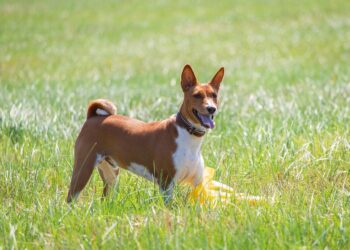Basset Hounds, with their droopy eyes, long ears, and gentle demeanor, are adorable and lovable companions. While these hounds are often associated with hunting, they also possess qualities that make them ideal candidates for therapy work. In recent years, there has been an increased interest in utilizing Basset Hounds as therapy dogs due to their calm and comforting nature. In this article, we will explore the characteristics that make Basset Hounds great therapy dogs and address some frequently asked questions about their suitability for this role.

Contents
Do Basset Hounds Make Good Therapy Dogs: Qualities
Basset Hounds possess several essential qualities that make them excellent therapy dogs:
1. Gentle and Calm Temperament
Basset Hounds are renowned for their gentle and calm temperaments. They are highly patient and tend to have a relaxed and easygoing demeanor. These qualities are vital when it comes to working with individuals in need of emotional support, such as hospital patients, children with special needs, or the elderly. Their soothing presence and laid-back attitude can provide comfort and companionship to those they interact with.
2. Friendly and Sociable
Basset Hounds are known for their friendly and sociable nature. They tend to get along well with people of all ages, including strangers. They thrive on human interaction and enjoy being in the company of others. This friendliness and sociability are especially valuable when it comes to therapy work, as they allow them to engage with individuals and build positive relationships. Their affectionate nature can bring joy and happiness to those they visit.
3. Empathy and Intuition
Despite their droopy appearance, Basset Hounds have an extraordinary ability to empathize with human emotions. They can sense when someone is feeling down or in need of comfort. This innate empathy, combined with their intuition, allows them to provide emotional support to individuals who may be experiencing anxiety, stress, or sadness. The keen sense of observation possessed by Basset Hounds enables them to respond appropriately and offer solace to those in distress.
4. Sensitive to Touch
Basset Hounds are known for their love of physical contact. They particularly enjoy being petted and cuddled. Their sensitivity to touch makes them ideal therapy dogs, as they can provide a comforting tactile experience to individuals who benefit from this kind of interaction. The act of stroking their soft, velvety fur can have a calming effect and help reduce anxiety or feelings of loneliness.
Frequently Asked Questions (FAQs)
Q: Can Basset Hounds be trained as therapy dogs?
A: Yes, Basset Hounds can be trained to become therapy dogs. While their stubborn streak can present challenges during training, with patience and positive reinforcement, they can learn the necessary skills and behaviors required for therapy work. Proper training and certification from recognized organizations such as Therapy Dogs International (TDI) or the Alliance of Therapy Dogs (ATD) is essential.
Q: What type of therapy work can Basset Hounds engage in?
A: Basset Hounds can engage in various types of therapy work, including visits to hospitals, nursing homes, schools, and rehabilitation centers. They can offer emotional support, companionship, and stress relief to patients, residents, students, and individuals undergoing therapy or rehabilitation.
Q: Are Basset Hounds suitable for all therapy settings?
A: While Basset Hounds can thrive in many therapy settings, their long ears and droopy eyes make them prone to infections and eye problems. Therefore, they may not be suitable for certain environments, such as facilities with strict hygiene regulations or settings where individuals may have allergies to animals. Always consult the facility or organization in question to determine if Basset Hounds are appropriate for the specific setting.
Q: Are Basset Hounds good with children?
A: Basset Hounds generally have a friendly and patient disposition, which makes them well-suited for interacting with children. However, as with any dog, proper supervision is necessary to ensure the safety and well-being of both the child and the dog. Children should be taught how to approach and interact with dogs appropriately.
Q: How do I know if my Basset Hound is suitable for therapy work?
A: Not all Basset Hounds are suited to become therapy dogs. It is important to evaluate your dog’s temperament, behavior, and health before considering them for therapy work. It is recommended to consult with professional trainers or organizations specializing in therapy dog training to assess your Basset Hound’s suitability.
Conclusion
Basset Hounds, with their gentle temperament, friendly nature, empathy, and love of human interaction, can indeed make excellent therapy dogs. Their unique qualities allow them to provide emotional support, comfort, and companionship to individuals in various therapy settings. However, it is important to consider each dog’s temperament and health before embarking on therapy work. With proper training, certification, and supervision, Basset Hounds can positively impact the lives of many through their therapeutic presence.
More:
5 Best Automatic Dog Feeders For Basset Hounds














